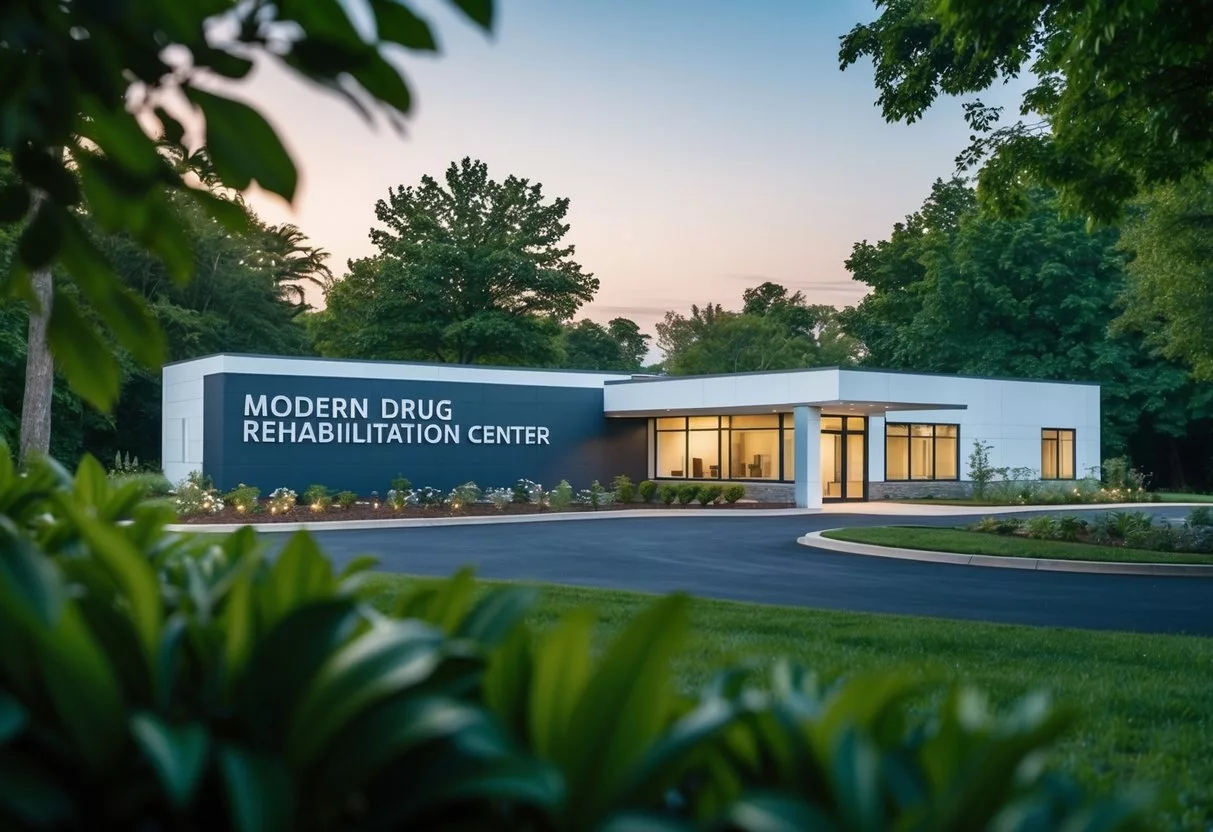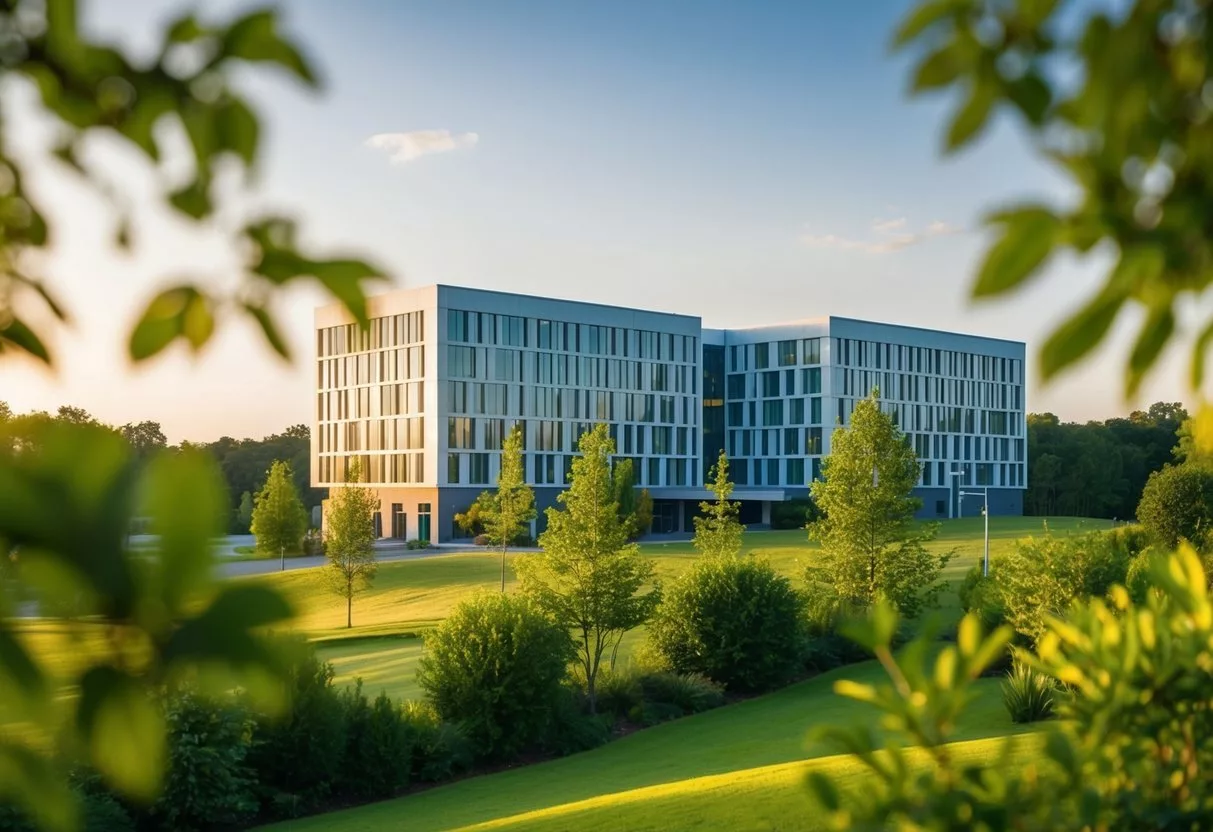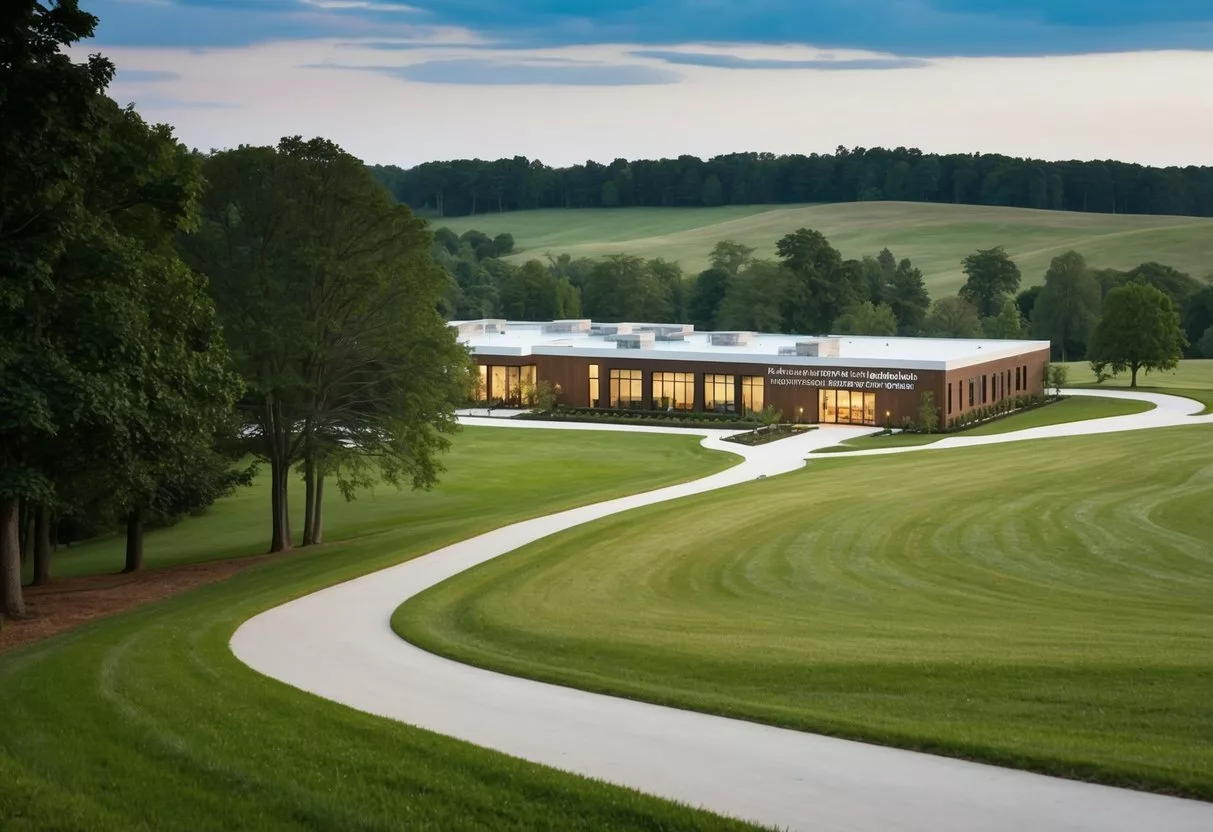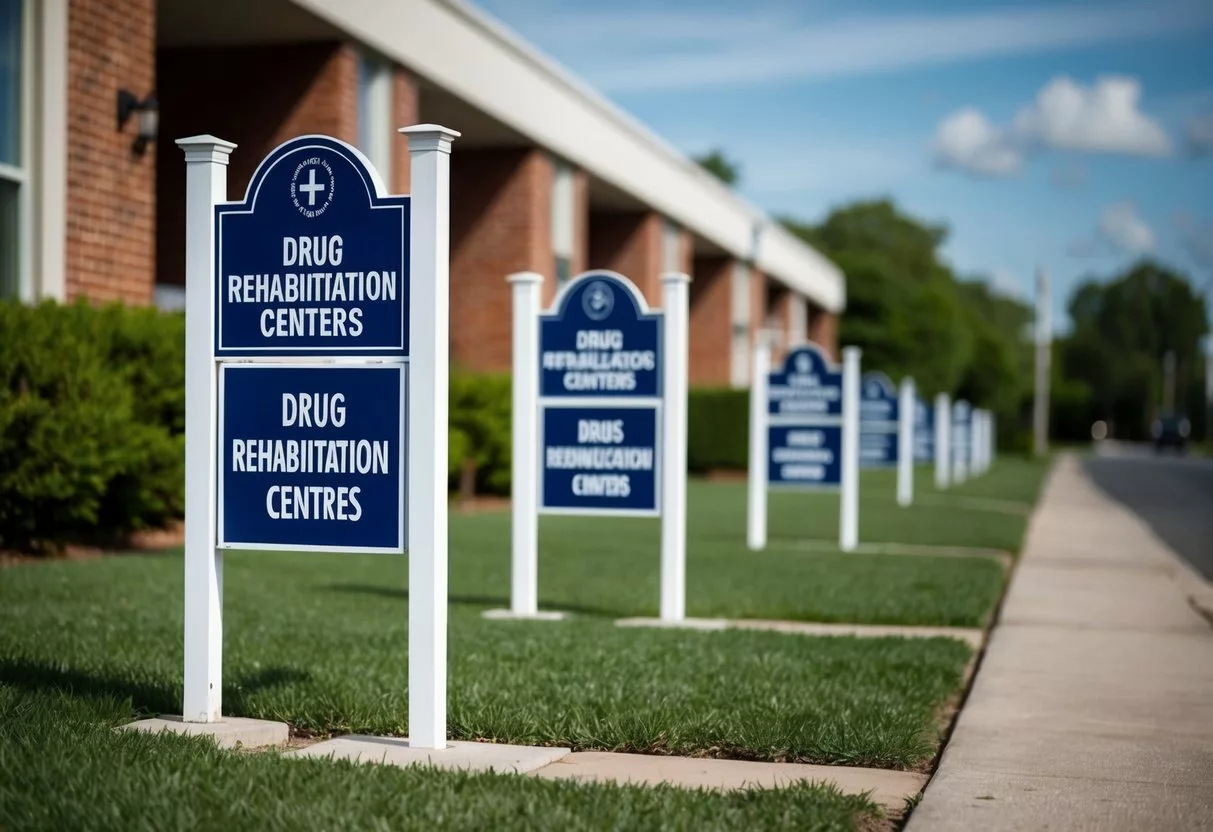Drug rehabilitation centers help people overcome addiction to drugs and alcohol. These facilities offer different types of care based on each person’s needs.
Some centers focus on detox, while others provide long-term treatment programs.

New York State has many options for those seeking help with addiction. The state directly operates 12 Addiction Treatment Centers and oversees over 1,700 addiction treatment programs. These centers provide personalized care that meets the specific needs of each client and supports long-term recovery.
People looking for drug rehab in New York City have several choices. There are more than 700 drug or alcohol rehab programs in the state. These include both state-funded and private facilities.
Many accept different types of insurance to help cover the costs of treatment.
Understanding Drug Addiction

Drug addiction is a complex issue that affects both the body and mind. It often involves mental health problems and can be triggered by various factors in a person’s life.
Substance Abuse and Mental Health Disorders
Substance use disorders and mental health issues often occur together. Many people with addictions also have anxiety, depression, or other mental health problems.
These issues can feed into each other, making both worse.
For example, someone might drink alcohol to cope with depression. But drinking can make depression worse in the long run.
Treatment centers often deal with both addiction and mental health at the same time. This approach, called dual diagnosis treatment, can be more effective than treating each issue separately.
Addiction Triggers and Behavioral Health
Many things can trigger drug use. Stress, trauma, and difficult emotions are common triggers.
Some people use drugs to deal with past trauma or PTSD.
Social situations and certain places can also lead to drug use. For instance, being around others who use drugs can make it hard to stay sober.
Understanding these triggers is a key part of addiction treatment.
Therapy can help people learn new ways to cope with triggers without using drugs.
Behavioral health treatments focus on changing harmful patterns. These may include cognitive-behavioral therapy or motivational interviewing.
Such treatments can help people build healthier habits and thinking patterns.
Types of Drug Rehabilitation Centers

Drug rehab centers offer different levels of care to meet varying needs. Programs range from intensive inpatient stays to flexible outpatient options. Some facilities focus on specific addictions or populations.
Inpatient Treatment Facilities
Inpatient rehab programs provide 24/7 care in a structured setting. Patients live at the facility for 30 to 90 days or longer.
These centers offer a high level of support and monitoring.
Daily schedules include therapy, group sessions, and educational classes. Patients learn coping skills and relapse prevention techniques.
Medical staff manage withdrawal symptoms and any health issues.
Inpatient care works well for severe addictions or those with co-occurring mental health disorders. It removes people from triggers in their normal environment. This allows full focus on recovery.
Outpatient Care Programs
Outpatient programs let people live at home while getting treatment. They offer more flexibility for those with work or family commitments.
Types of outpatient care include:
- Partial hospitalization (5-7 days per week, 4-6 hours per day)
- Intensive outpatient (3-5 days per week, 2-4 hours per day)
- Standard outpatient (1-2 days per week, 1-2 hours per day)
Sessions involve individual and group therapy. Some programs include medication management.
Outpatient care costs less than inpatient treatment. It works best for those with milder addictions and a stable home environment.
Specialized Treatment Services
Many rehab centers offer programs for specific groups or addictions. This targeted care addresses unique needs and challenges.
Examples include:
- Gender-specific programs
- LGBTQ+ focused treatment
- Dual diagnosis care for co-occurring mental health issues
- Programs for specific drugs like opioids or alcohol
Some centers use holistic approaches. These may include yoga, art therapy, or nutrition counseling. Faith-based programs incorporate spiritual elements into treatment.
Specialized care can improve outcomes by tailoring treatment to individual needs. It helps people connect with others facing similar struggles.
Comprehensive Treatment Programs

Drug rehab centers offer wide-ranging programs to help people overcome addiction. These programs address both physical and mental aspects of recovery. They use proven methods and holistic approaches to support long-term sobriety.
Holistic Approach to Recovery
Many rehab centers take a holistic view of addiction treatment. This means looking at the whole person, not just their substance use. Programs often include:
• Detox and medical care • Mental health counseling • Nutrition and exercise plans • Stress management techniques
Wellness activities like yoga and meditation are common. These help reduce stress and build coping skills.
Proper nutrition gives the body strength to heal. Exercise improves mood and overall health.
Some centers offer alternative therapies too. These may include art therapy, music therapy, or outdoor activities. The goal is to heal the mind, body, and spirit together.
Evidence-Based Therapies
Rehab programs rely on therapies proven to work for addiction. Common approaches include:
• Cognitive behavioral therapy (CBT) • Motivational interviewing • 12-step facilitation • Family therapy
Medication management is often part of treatment. This helps with withdrawal and cravings. It can also treat co-occurring mental health issues.
Group and individual counseling sessions are key parts of most programs. These help people understand their addiction and learn new coping skills.
Therapy also addresses underlying issues that may contribute to substance use.
Many centers use a mix of therapies. This allows them to tailor treatment to each person’s needs.
The Role of Detox in Recovery

Detox is a key first step in addiction treatment. It helps the body get rid of drugs and alcohol safely. Detox also prepares people for further treatment.
Medical Detoxification Process
Medical detox takes place in a supervised setting. Doctors and nurses watch over patients as they go through withdrawal. They give medicine to ease symptoms and prevent problems.
The process usually lasts 5-7 days. It can be longer for some drugs.
During detox, the body adjusts to being without substances. This can cause unpleasant effects like:
- Nausea
- Shaking
- Anxiety
- Sweating
Medical staff check vital signs often. They make sure patients stay safe and as comfortable as possible. Detox centers also offer support and counseling.
Post-Detox Treatment Options
After detox, patients have choices for ongoing care. These help prevent relapse and build skills for long-term recovery.
Common options include:
• Inpatient rehab: Patients live at a center for weeks or months. They get intense therapy and support.
• Outpatient programs: People live at home but go to treatment during the day.
• Support groups: Regular meetings with others in recovery provide ongoing help.
• Therapy: One-on-one or group sessions address mental health and coping skills.
• Medication: Some drugs can reduce cravings and support sobriety.
The right choice depends on each person’s needs. Many benefit from a mix of treatments over time.
Considering Co-Occurring Disorders

Many people seeking drug rehabilitation also struggle with mental health issues. These combined challenges require specialized care to address both substance abuse and mental health simultaneously.
Integrated Treatment Approach
Co-occurring disorders involve both a mental health condition and a substance use disorder. An integrated treatment approach is key for effective care.
This method combines mental health and addiction services in one setting. It allows for coordinated care from a team of experts.
Integrated treatment often includes:
- Medication management
- Individual and group therapy
- Life skills training
- Relapse prevention strategies
Behavioral health professionals work together to create personalized treatment plans. These plans address both mental health and substance abuse issues.
Patients learn coping skills for managing symptoms of both disorders. This helps reduce the risk of relapse and improves overall wellbeing.
Integrated care can take place in various settings. These include inpatient facilities, outpatient clinics, and residential programs.
Treatment Access and Admissions

Getting into rehab involves a few key steps. The process starts with an assessment and continues with figuring out how to pay for treatment.
Assessment and Admission Process
The rehab admissions process usually begins with a phone call. A staff member will ask about drug use, health, and other important details.
This helps them understand the person’s needs. The call is private and helps create a treatment plan.
Next, the rehab center may do a more detailed check. This could be in person or over the phone. They look at mental and physical health, drug history, and living situation.
The center then decides if their program is a good fit. If so, they work out when the person can start treatment.
Insurance and Coverage Options
Many rehab centers take insurance to help pay for treatment. People should check with their insurance company to see what’s covered.
Some common insurance options for rehab include:
- Private health insurance
- Medicaid
- Medicare
- State-funded insurance
Coverage can vary. It may pay for all or part of:
- Detox
- Inpatient care
- Outpatient programs
- Medications
If insurance doesn’t cover everything, many rehabs offer payment plans. Some have sliding scale fees based on income. This helps make treatment more affordable for more people.
The Importance of Aftercare

Aftercare plays a vital role in maintaining long-term sobriety after completing rehab. It provides ongoing support and resources to help people transition back to daily life while avoiding relapse.
Recovery Coaching and Support Systems
Recovery coaching offers personalized guidance to individuals in addiction recovery. Coaches help clients set goals, develop coping skills, and navigate challenges. They provide accountability and encouragement throughout the recovery journey.
Support systems are crucial for maintaining sobriety. These may include 12-step groups, therapy sessions, or sober living homes. Such networks offer a safe space to share experiences and get advice from others in recovery.
Aftercare programs often include ongoing addiction counseling. This helps people work through underlying issues and develop healthy coping mechanisms. Regular counseling sessions can prevent small setbacks from turning into full relapses.
Many aftercare plans involve a mix of services. This might include group therapy, individual counseling, and recovery coaching. The goal is to provide comprehensive support tailored to each person’s needs.
Relapse rates are highest in the first few months after rehab. A strong aftercare plan helps people navigate this risky period. It equips them with tools to handle stress, cravings, and triggers effectively.
Support for Families and Loved Ones
Family support is key in addiction recovery. Both therapy and education help loved ones understand substance abuse and aid in the recovery process.
Family Therapy and Involvement
Family therapy is a vital part of drug rehab. It helps fix damaged relationships and builds a support system for the person in recovery. Therapists work with families to improve communication and set healthy boundaries.
Family support groups offer a place to share experiences and learn coping skills. These groups help family members deal with the stress of having a loved one with addiction.
Rehab centers often have family programs. These teach relatives how to support their loved one without enabling harmful behaviors. Family involvement increases the chances of long-term recovery success.
Educating Family Members
Education is crucial for families dealing with addiction. Learning about substance abuse helps relatives understand the nature of addiction as a disease.
Rehab centers provide information on:
- Signs and symptoms of drug use
- Effects of drugs on the brain and body
- The recovery process and potential setbacks
Resources for families include books, websites, and workshops. These tools help loved ones learn how to support recovery while taking care of their own needs.
Understanding addiction reduces blame and shame. It allows families to offer more effective support during and after rehab.
Accreditations and Quality of Care

Accreditations ensure drug rehab centers meet high standards. Quality of care depends on certified facilities and trained staff.
Certified Treatment Facilities
CARF accreditation is important for rehab centers. It shows they meet strict quality standards. CARF checks aging services, behavioral health, and rehab programs.
The Joint Commission also accredits rehab centers. They focus on safety and quality. Centers get checked every 3 years.
SAMHSA approves some centers too. This group makes sure treatment follows best practices.
Certified centers often offer more treatment options. These may include:
- Inpatient care
- Outpatient programs
- Detox services
- Aftercare support
Professional Staff and Addiction Specialists
Qualified staff are key to good rehab care. Centers should have licensed doctors and nurses. They also need trained counselors.
Addiction specialists play a big role. They understand the complex nature of addiction. These experts can create personalized treatment plans.
Staff should have ongoing training. This keeps them up-to-date on new treatment methods. It also helps them provide better care.
Many centers have a mix of professionals. This might include:
- Psychiatrists
- Psychologists
- Social workers
- Addiction counselors
The right team can make a big difference in recovery outcomes.
Exploring Rehabilitation Amenities
Drug rehab centers offer a range of amenities to support recovery. These include basic facilities, specialized services, and alternative therapies.
Facilities and Services Offered
Many rehab centers provide gym facilities to encourage physical fitness. Regular exercise helps improve health and mood during recovery.
Comfortable living spaces are common. These may include private or shared rooms, lounges, and outdoor areas.
Nutritious meals are a key part of rehab. Centers often have on-site cafeterias or dining halls serving balanced diets.
Medical facilities are crucial. These can include exam rooms, medication dispensaries, and sometimes detox units.
Some centers offer additional amenities like:
- Swimming pools
- Sports courts
- Libraries
- Computer labs
Alternative Therapies and Activities
Yoga and meditation classes are popular in many rehab centers. These practices help reduce stress and promote mindfulness.
Art and music therapy allow patients to express themselves creatively. This can be healing for many in recovery.
Some centers offer adventure therapy. This might include hiking, rock climbing, or ropes courses. These activities build confidence and teamwork skills.
Animal-assisted therapy, like equine therapy, is available at some facilities. Interacting with animals can be calming and therapeutic.
Holistic treatments like acupuncture or massage may be offered. These can help manage pain and reduce anxiety during recovery.
Rehabilitation Center Locations
Drug rehab centers can be found across the United States. Many offer specialized programs to meet different needs. Some focus on specific substances or treatment approaches.
State-Specific Treatment Options
California has many rehab options, from luxury centers in Malibu to affordable programs in urban areas. Florida is known for its “Florida Model” of treatment, which combines residential care with real-world living skills practice.
New Jersey offers a mix of urban and suburban treatment settings. North Carolina has mountain retreats as well as coastal facilities. Mississippi provides state-funded options for those with limited resources.
Texas has a wide range of rehab types, from faith-based to evidence-based programs. Each state has unique regulations and funding options for addiction treatment.
Nationwide Recovery Networks
Large providers like Hazelden Betty Ford Foundation and American Addiction Centers operate facilities in multiple states. These networks often share resources and allow transfers between locations.
Nationwide networks can offer consistent care across different regions. They may have specialized programs that smaller local centers can’t provide.
Some benefits of nationwide networks include:
- Wider insurance acceptance
- More options for different levels of care
- Ability to match patients with the best fit program
- Access to a larger pool of addiction specialists
Patients can often start treatment near home and transfer to another location if needed. This flexibility can be helpful for long-term recovery plans.
Frequently Asked Questions
Drug rehabilitation centers offer comprehensive programs to help individuals overcome addiction. These programs involve various steps, therapies, and support systems aimed at promoting long-term recovery and sobriety.
What are the typical steps involved in the addiction treatment process?
The addiction treatment process usually starts with an initial evaluation. This assessment helps determine the appropriate level of care needed.
Detoxification often follows, allowing the body to rid itself of harmful substances. After detox, patients typically enter inpatient or outpatient treatment programs.
These programs include individual and group therapy sessions, along with educational workshops on addiction and coping skills.
How does individual counseling contribute to recovery in drug rehabilitation?
Individual counseling plays a crucial role in addiction recovery. It provides a private setting for patients to explore personal issues and triggers.
Counselors help clients develop coping strategies and address underlying mental health concerns. This one-on-one attention allows for personalized treatment plans tailored to each individual’s needs.
What types of therapies are utilized in addiction treatment programs?
Rehab centers use various therapies to address addiction. Cognitive-behavioral therapy (CBT) helps patients identify and change negative thought patterns.
Motivational interviewing encourages individuals to find internal motivation for change. Family therapy involves loved ones in the recovery process.
Other approaches may include art therapy, mindfulness practices, and trauma-focused therapies.
What should families know about supporting a loved one during rehab?
Families play a vital role in the recovery process. They should educate themselves about addiction and its effects on relationships.
Participating in family therapy sessions can improve communication and heal damaged relationships. Setting healthy boundaries and practicing self-care are also important for family members.
How do rehab centers address potential relapse after treatment?
Rehab centers recognize that relapse is a common part of recovery. They teach patients to identify triggers and develop coping strategies.
Many centers offer ongoing support and counseling after initial treatment. Some provide alumni programs to keep patients connected to their recovery community.
What role does aftercare play in maintaining long-term sobriety post-rehabilitation?
Aftercare is crucial for maintaining sobriety after rehab. It may include ongoing therapy sessions, support group meetings, and regular check-ins with counselors.
Some individuals benefit from sober living arrangements or vocational training programs. Aftercare helps reinforce skills learned in rehab and provides continued support during the transition back to daily life.